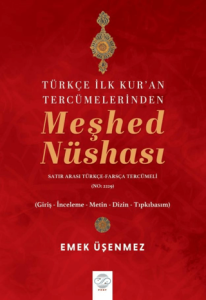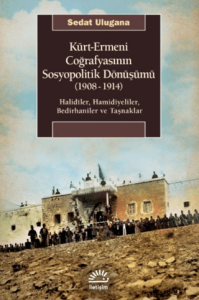
Thanks to this diary written by a janissary clerk about 1711 Pruth Campaign, it is a probability that we have the opportunity to know better than the historian of the period.
While setting off the final campaign as a janissary who served for 55 years, the Janissary Clerk Hasan embraced the paper and quill to create a witness for the history, not only as a part of his job.
He recorded the campaign starting from the announcement of the war and to the thorough political evaluation of the period in an international scale: The campaign march, arrival at the battle zone, accommodation, battles, influx of serdengeçtis, desertion of soldiers, chasing off the enemy and signing a peace treaty…
Having mentioned about those who had neglected and disregarded their duties and obligations and were sentenced after the war and about the diplomacy processes with Russia, the Janissary Clerk Hasan puts an end to his words by expressing that: “I would like those who has the knowledge and read this diary to remember me with blessings, and to complete the deficiencies in my words and correct and cover up my mistakes.”
The Janissary Clerk Hasan was born as a son of a father who had also served as a janissary and followed the path of his father. He became a janissary in 1656-1657 and was promoted to the position of janissary clerk after having participated in Kamenice Campaign in 1672 and Uman Campaign in 1674. He was appointed to Crete in 1682 and served in various provinces of the island for 12 years. Between the years of 1694 and 1697, he served in Lesbos and between the years of 1697 and 1704 in Euboea. He was promoted to the office of Janissary Clerk in Istanbul in 1704. He participated in Pruth Campaign in 1711 despite of his grand old age and wrote about his campaign memories constituting this book.
Thanks to this diary written by a janissary clerk about 1711 Pruth Campaign, it is a probability that we have the opportunity to know better than the historian of the period.
While setting off the final campaign as a janissary who served for 55 years, the Janissary Clerk Hasan embraced the paper and quill to create a witness for the history, not only as a part of his job.
He recorded the campaign starting from the announcement of the war and to the thorough political evaluation of the period in an international scale: The campaign march, arrival at the battle zone, accommodation, battles, influx of serdengeçtis, desertion of soldiers, chasing off the enemy and signing a peace treaty…
Having mentioned about those who had neglected and disregarded their duties and obligations and were sentenced after the war and about the diplomacy processes with Russia, the Janissary Clerk Hasan puts an end to his words by expressing that: “I would like those who has the knowledge and read this diary to remember me with blessings, and to complete the deficiencies in my words and correct and cover up my mistakes.”
The Janissary Clerk Hasan was born as a son of a father who had also served as a janissary and followed the path of his father. He became a janissary in 1656-1657 and was promoted to the position of janissary clerk after having participated in Kamenice Campaign in 1672 and Uman Campaign in 1674. He was appointed to Crete in 1682 and served in various provinces of the island for 12 years. Between the years of 1694 and 1697, he served in Lesbos and between the years of 1697 and 1704 in Euboea. He was promoted to the office of Janissary Clerk in Istanbul in 1704. He participated in Pruth Campaign in 1711 despite of his grand old age and wrote about his campaign memories constituting this book.






















